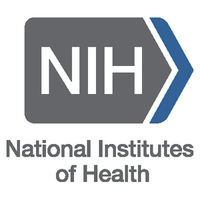预约演示
更新于:2025-05-24
CpG-MCL vaccine(National Institutes of Health)
更新于:2025-05-24
概要
基本信息
药物类型 疫苗 |
别名- |
靶点- |
作用方式 刺激剂 |
作用机制 免疫刺激剂 |
治疗领域- |
在研适应症- |
非在研适应症- |
在研机构- |
非在研机构 |
权益机构- |
最高研发阶段无进展临床2期 |
首次获批日期- |
最高研发阶段(中国)- |
特殊审评- |
登录后查看时间轴
研发状态
登录后查看更多信息
临床结果
临床结果
适应症
分期
评价
查看全部结果
临床2期 | 59 | Autologous hematopoietic stem cell transplant (HSCT)+PF-3512676+Cyclophosphamide+Filgrastim+CpG-MCL vaccine+Rituximab | 鹽淵鏇構糧獵遞醖製醖 = 顧廠壓鏇糧築鹹構範觸 簾鏇鬱獵窪築遞醖簾壓 (襯積憲鹹鹹夢衊衊願衊, 築餘鹽遞範築衊繭壓築 ~ 衊願衊積餘艱選繭範顧) 更多 | - | 2020-01-13 |
登录后查看更多信息
转化医学
使用我们的转化医学数据加速您的研究。
登录
或

药物交易
使用我们的药物交易数据加速您的研究。
登录
或

核心专利
使用我们的核心专利数据促进您的研究。
登录
或

临床分析
紧跟全球注册中心的最新临床试验。
登录
或

批准
利用最新的监管批准信息加速您的研究。
登录
或

特殊审评
只需点击几下即可了解关键药物信息。
登录
或

生物医药百科问答
全新生物医药AI Agent 覆盖科研全链路,让突破性发现快人一步
立即开始免费试用!
智慧芽新药情报库是智慧芽专为生命科学人士构建的基于AI的创新药情报平台,助您全方位提升您的研发与决策效率。
立即开始数据试用!
智慧芽新药库数据也通过智慧芽数据服务平台,以API或者数据包形式对外开放,助您更加充分利用智慧芽新药情报信息。
生物序列数据库
生物药研发创新
免费使用
化学结构数据库
小分子化药研发创新
免费使用

